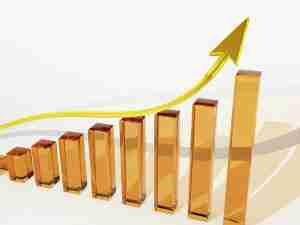Argentina reports encouraging numbers for GDP, trade
posted by AJOT | Jun 19 2013 at 08:00 PM | International Trade
Argentina's economic growth sped up slightly in the first quarter and May's trade surplus topped market expectations after dropping sharply in previous months, government data showed.
The country's gross domestic product rose 3.0 percent from a year earlier and 1.5 percent from the fourth quarter of 2012.
This compares with a 2.1 percent year-on-year increase in the fourth quarter and an upwardly revised 1.5 percent expansion versus the third quarter.
Latin America's No. 3 economy has cooled abruptly after booming during most of the last decade. Most economists blame weak external demand, high inflation and the negative impact of state currency controls and import curbs on investment.
GDP slowed to 1.9 percent in 2012 from 8.9 percent in 2011.
Argentina is widely accused of misreporting inflation and, to a lesser extent, growth data. It faces potential sanctions by the International Monetary Fund, which in February reprimanded the country over the quality of its data.
The first-quarter GDP data was unexpectedly released, ahead of a long holiday weekend in Argentina. The figures were originally scheduled for publication.
May's trade balance data was also reported. The trade surplus narrowed 3 percent from a year ago to $1.34 billion, but it came in above the $1.22 billion median forecast given by nine analysts in a Reuters poll.
The analysts' estimates had ranged widely from $700 million to $1.91 billion.
Imports jumped 17 percent in May from a year earlier to $7.09 billion, driven mainly by a big jump in the purchase of capital goods - including railroad cars and engines from China - and parts and accessories for capital goods.
Fuel imports rose just 5 percent year-on-year in May but surged 29 percent in the January-May period as a whole.
Meanwhile, exports rose 14 percent to $8.43 billion, bolstered by vehicle exports to neighboring Brazil as well as soybean and corn shipments, which have increased after a drought crimped production last year.
The trade surplus in the first five months of the year shrank by 34 percent versus the same period of 2012. This is bad news for the government, which relies on the surplus to boost dollar supplies on the tightly controlled currency market.
Argentina's center-left government repays debts to private creditors using the central bank's foreign currency reserves. The country has been effectively shut out of global credit markets since its massive 2002 sovereign default. (Reuters)







